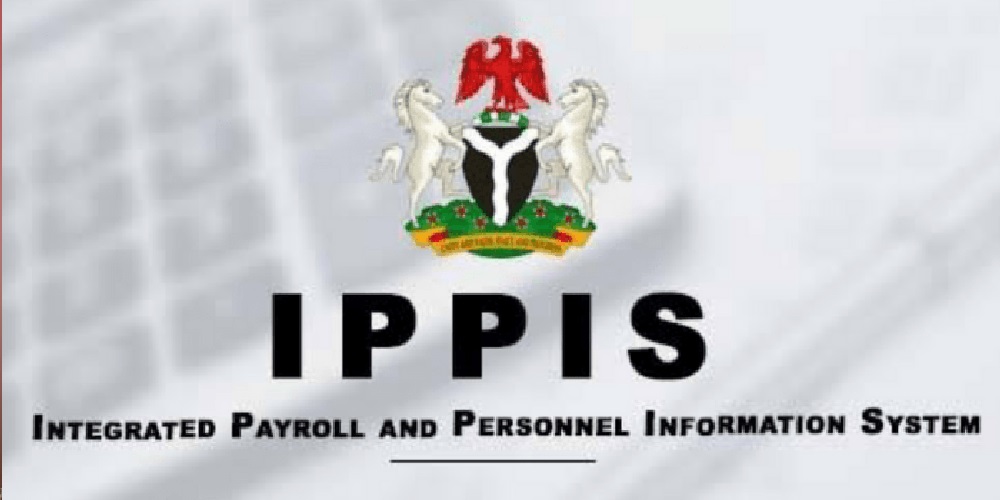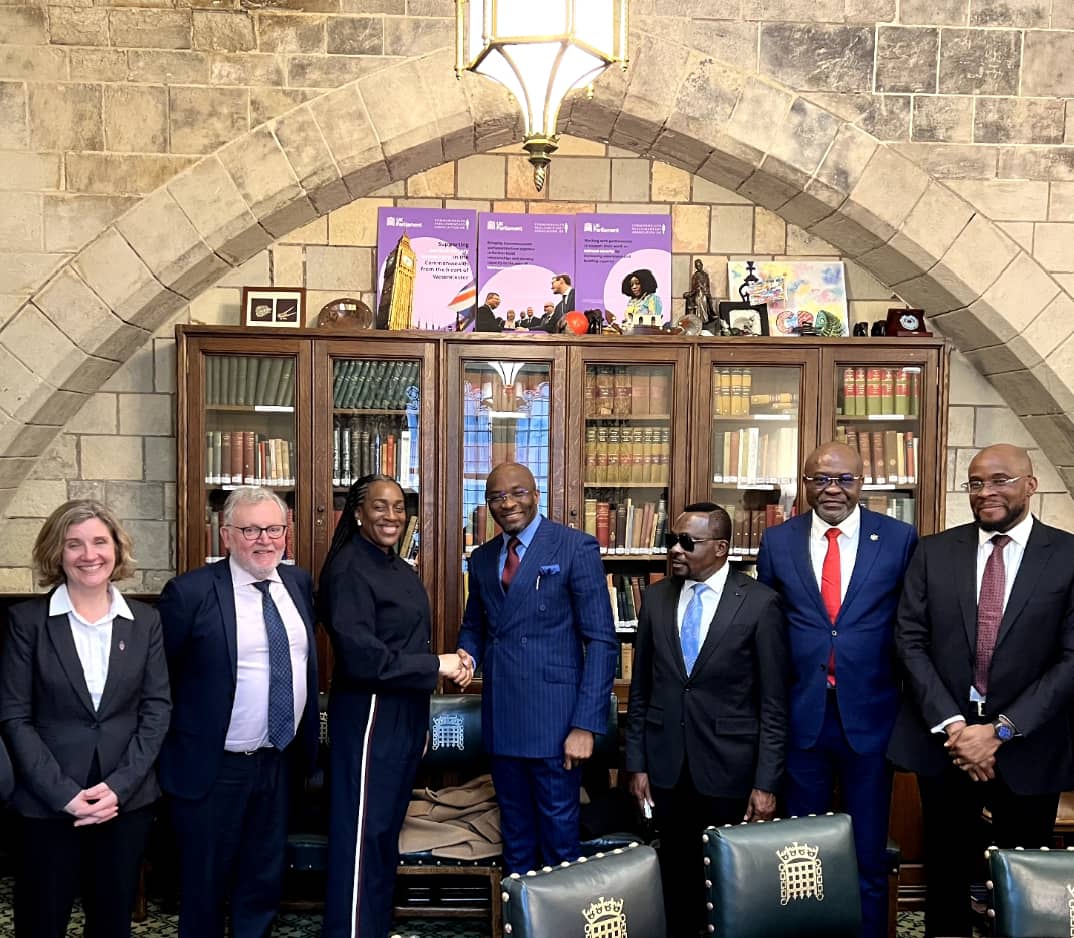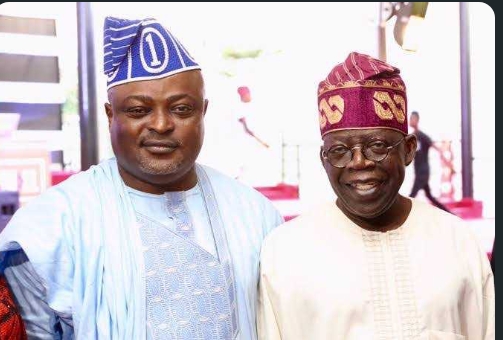News
FG releases guidelines for tertiary institutions’ exit from IPPIS

The Federal Government has issued new guidelines outlining the process for federal tertiary institutions to transition out of the Integrated Personnel and Payroll Information System.
The move, aimed at granting these institutions more autonomy and improving efficiency in payroll management, follows approval from the Federal Executive Council earlier this year.
In a circular dated October 8, 2024, the Accountant-General of the Federation, Dr Oluwatoyin Madein, provided details of the transition plan.
According to the circular, the payroll for October 2024 will still be processed through the IPPIS platform, but starting in November, institutions will handle their payroll independently.
The Office of the Accountant-General of the Federation’s IPPIS department will verify these records, and payments will be made via the Government Integrated Financial Management Information System.
Madein emphasised the importance of adhering to the new guidelines, stating, “The payrolls for October 2024 for the tertiary institutions shall be processed on the IPPIS platform while that of November and December 2024 shall be processed by the institutions, checked by OAGF IPPIS, and payment made through the GIFMIS platform.”
To ensure a smooth transition, FTIs must complete and submit GIFMIS Enrolment Forms by October 21, 2024.
These forms enable access to the Personnel Cost Budget Line on the GIFMIS platform.
Institutions are instructed to submit these forms at the AGF’s headquarters in Abuja or any Federal Pay Office nationwide.
Also, institutions must validate and upload the bank account details of their employees onto the GIFMIS platform by the same October 21 deadline.
Madein stressed that this is crucial for maintaining uninterrupted salary payments after the exit from IPPIS.
The circular also directed institutions to compile any outstanding promotion and salary arrears for submission to the Budget Office of the Federation for resolution.
Highlighting the significance of the new measures, Madein said, “All tertiary institutions are enjoined to comply with these operational guidelines and other extant rules and regulations. The accounting officers are to ensure that the content of this circular is brought to the attention of all concerned for strict compliance.”
This transition has been welcomed by academic unions, including the Academic Staff Union of Universities which had previously criticized IPPIS for delays in payments and incorrect deductions.
They see the new arrangement as a positive step towards restoring autonomy to tertiary institutions in handling their personnel and payroll functions.
The move from IPPIS, initially implemented to streamline payroll processes and improve accountability, is expected to introduce more flexibility through the GIFMIS platform.
News
Tax Reform Bills: Our Goal is to Boost Revenue and Encourage Investments — Deputy Speaker



News
Just in: Ex-FCT minister, Gen Jeremiah Useni is dead

Popular former Minister of the Federal Capital Territory (FCT), Lt. General Jeremiah Timbut Useni has died at 81.
According to family sources, he died on Thursday, January 23, 2025, in a protracted illness in Paris.
He was born on February 16, 1943. He would have celebrated his 82nd birthday on the 16th of next month.
The passage of the Useni was also contained in a statement by Governor Caleb Mutfwang of Plateau State l.
Hiis Director of Press and Public Affairs, Gyang Bere, endorsed the statement.
The governor described the demise of General Useni as a tremendous loss not only to his immediate family but also to the Nigerian Armed Forces, Plateau State, and the entire nation.
According to Mutfwang, General Useni’s exemplary leadership and steadfast commitment to service were remarkable.
He said his Useni’s death had left an indelible mark on Nigeria’s security and political landscape.
He noted that General Useni’s tireless efforts to promote peace and security, especially in Northern Nigeria and Plateau State, would forever be remembered.
Mutfwang recounted the career of the late General, whom he said served Nigeria with distinction in various capacities, including as Minister of Transport, Quarter-Master General of the Nigerian Army, and Minister of the FCT.
“After retiring from the military, General Useni transitioned into politics, where he continued his service to the nation. He served as Deputy Chairman of the All Nigeria Peoples Party (ANPP) and was elected Senator representing Plateau South Senatorial District in 2015 under the People’s Democratic Party (PDP),” he said.
Mutfwang hailed General Useni’s life of selfless service, noting his profound contributions to the military, politics, and his community. He emphasized that the General’s legacy of compassion, kindness, generosity, and dedication to the well-being of others will endure in the lives of those he impacted.“On behalf of my family, the government, and the peace-loving people of Plateau State, I extend my deepest sympathies to the President, the Nigerian Armed Forces, the immediate family, and all those mourning the loss of this distinguished elder statesman.
News
Ex- Lagos Speaker Obasa Returns to Abuja in Bid to Reignite Political Career

By Kayode Sanni-Arewa
The embattled ex- Speaker of the Lagos State House of Assembly, Mudashiru Ajayi Obasa, made a quiet return to Abuja Sunday evening, fueling speculation about his desperate bid for reconciliation and a political lifeline.
Sources at the Nnamdi Azikiwe International Airport confirmed to our correspondent that Obasa arrived under the cover of darkness, without the usual entourage of aides or security detail that once accompanied him during his tenure as the third most powerful figure in Lagos politics.
Obasa’s arrival in the nation’s capital comes on the heels of a failed attempt to meet with President Bola Tinubu in the United Arab Emirates. The ex-Speaker, who was impeached on January 13 after a majority of lawmakers voted to remove him, was reportedly hoping for an audience with the President to salvage his political future.
The former Speaker’s recent travels have taken him to multiple international destinations. On January 8, he flew to Atlanta, Georgia, with a group of loyal lawmakers and the ousted Clerk of the House, Olalekan Onafeko, alongside a woman known as “Madam Speaker.” However, sources reveal that Obasa left his supporters stranded in various locations around the globe as he sought to save his own skin, further alienating those who once stood by him.
Obasa’s impeachment, which saw more than two-thirds of the House vote for his removal, marked a significant shift in the Lagos Assembly. His successor, Rt Hon Mojisola Meranda of Apapa 1, was swiftly elected by 32 members, signaling the successful overthrow of Obasa’s political reign.
Obasa, the former strongman of Agege and Lagos politics is facing a plethora of challenges post-impeachment. He is reportedly seeking a reprieve from EFCC and ICPC investigations and hoping for a political compromise. His legal consultant has advised that his impeachment is constitutionally valid, urging him to accept the House’s decision and issue a public statement acknowledging the development.
-

 Metro22 hours ago
Metro22 hours agoLady nabbed for balling 100 men in 24hrs
-

 News22 hours ago
News22 hours agoGoodbye to Medical Tourism as Anderson’s Hospital in Port Harcourt Introduces Advanced Electro-Physiology in Nigeria (Photos)
-

 News13 hours ago
News13 hours agoSterling Bank Embroiled in Money Laundering Scandal
-

 Health22 hours ago
Health22 hours agoNAFDAC Seals Kaduna Warehouse Over N75 Million Expired Goods
-

 News13 hours ago
News13 hours agoPardoned ex-convict by Gov Adeleke goes back to crime, steals tv set
-

 News13 hours ago
News13 hours agoDPO Faces Probe For Sleeping With Teenage Girl In Police Custody
-

 News13 hours ago
News13 hours ago24hrs after President Donald Trump’s declaration, over 460 illegal immigrants arrested
-

 News13 hours ago
News13 hours agoPolice rescue abducted AIG’s wife, waste kidnappers








